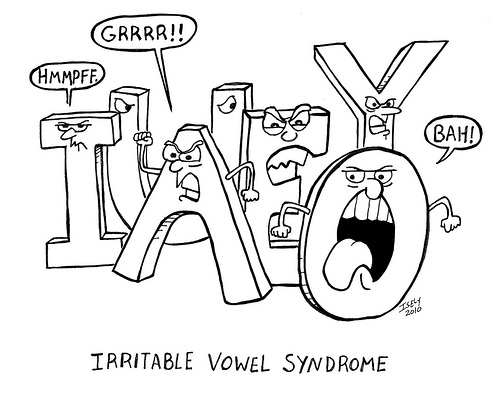
Where do we begin? Perhaps we should just start at the beginning of our thoughts on the subject, rather than go off the rails chasing other ideas.

As most of you probably know by now if you follow what’s left of the newspapers and the network news broadcasts, the Maine Legislature’s Government Oversight Committee (GOC) held a working session on Friday, March 13th. The second item on the agenda was consideration of a proposal put forward by Senator Stan Gerzofsky, a member of the GOC, that the Northern New England Passenger Rail Authority (NNEPRA) be studied by the Office of Program Evaluation and Government Accountability (OPEGA), which gets its direction from the GOC.
Your correspondent attended the session, along with a half dozen or so folks from the Bouchard Drive neighborhood in Brunswick. Other attendees that we recognized were

Claudia Knox, the recently identified spokesperson for “All Aboard Brunswick (AAB)” and Alison Harris, an outspoken supporter of the Downeaster. Neither the Booch or ET were in evidence. But Wayne Davis, Grand High Poobah of TrainRiders Northeast, and their attorney, Bruce Sleeper were there, as was Patsy Quinn, ED of NNEPRA, and another person we took to be a staff member of hers. We thought Ms. Quinn looked a bit ragged, perhaps showing the strain of recent events on any number of fronts.
Long story short, the GOC voted unanimously to move forward with the proposed effort, which we’re sure will take considerable time to complete. There was copious coverage in both print and broadcast media, and we’ll touch on that subsequently.
We were there just to watch what went on in the committee room; public comments were not part of the proceedings. However, there was considerable ‘comment’ after the vote, outside the room, where media correspondents had gathered. Poobah Davis of TRNE demonstrated once again that getting between him and a TV camera can be risky.
While we didn’t stick around to watch the unfolding theatrics (perhaps we should have; we’ll be better prepared next time), we understand that the otherwise civil AAB spokes-majorette was quite agitated about the foregoing proceedings, leading to a hissy-fit according to our sources. Committee proceedings had all taken place at a very low-key level, with no indication of tempers bubbling below the surface among committee members, or OPEGA personnel.
First, some background. We’ve heard that several members of the legislature were not aware that NNEPRA is an agency of Maine State Government until Sen. Gerzofsky put his proposal forward; they thought it was a federal operation. So we think it’s appropriate once again to review the ‘charter’ for the Authority.
Here are pertinent passages from Maine Statute; emphasis is ours:
Background:
NNEPRA was created in Maine Statute in 1995. This action stemmed from a populist initiative campaign, inquiring whether the state should sponsor the return of passenger rail service.
The statutory language regarding the Authority's creation, and the establishment of passenger rail service, is found in MRSA Title 23, Chapter 621.
The passages key to this discussion are these (“authority” is NNEPRA):
§8003. Initiation and establishment of passenger rail service
Establishment of service. The authority is directed to take all actions that are reasonably necessary to initiate, establish or reinitiate regularly scheduled passenger rail service between points within this State and points within and outside this State. These actions may include, but are not limited to, the acquisition, holding, use, operation, repair, construction, reconstruction, rehabilitation, modernization, rebuilding, relocation, maintenance and disposition of railroad lines, railway facilities, rolling stock, machinery and equipment, trackage rights, real and personal property of any kind and any rights in or related to that property.
§8006. Funding
The authority is directed to use any revenues it receives from the operation of the passenger rail service established pursuant to this chapter to pay the operational expenses of that passenger rail service. The authority is directed to seek and use funds necessary to pay all operational expenses of this passenger rail service that are not met by fares and other funds or revenues. For the purposes of this section, "operational expenses" include, but are not limited to, all additional capital expenses necessary to maintain the passenger rail service.
§8009. Reasonable fares
Fares for the passenger rail service established pursuant to this chapter must be set at reasonable levels to encourage use of this service.
§8010. Satisfaction of operating deficits
The authority is directed to obtain all additional funds, through borrowing, revenues or other means, necessary to satisfy operating deficits arising from expenses, including capital expenditures, necessary to ensure the continuation of passenger rail service established pursuant to this chapter.
§8111. Purpose
The Northern New England Passenger Rail Authority, as established by Title 5, section 12004-F, subsection 16, is a body both corporate and politic in the State established for the general purpose of promoting passenger rail service as set forth in subchapter 1. It is declared that the purposes of this chapter are public and that the authority must be regarded as performing a governmental function in carrying out this chapter.
NNEPRA has the same structural/statutory design as the Maine Turnpike Authority (MTA) and the Maine State Housing Authority (MSHA.) Accordingly, it is prone to the same systemic deficiencies that afflicted MTA and MSHA; lack of oversight, accountability, and transparency. Placement at extreme reaches of State Government leads to a sense of autonomy, easily abetted by superficial/routine Board conduct. NNEPRA juxtaposition in the midst of municipal, state, and federal governments makes it easy to leverage confusion and muddled roles, and diminishes coherent oversight while enabling circumvention of established regulations and processes.
Both the MTA and the MSHA suffered well publicized operating problems, due among other things to ineffectual Board oversight. These were only corrected when a determined Governor and effective Board Chairs decided to correct things. The MTA was rife with waste, fraud, and financial abuse, and the former Executive Director is now in prison. The former MSHA Executive Director also epitomized lack of respect for the public trust and indulged in political cronyism, and chose to resign before having to confront further exposure of the details.
Clearly NNEPRA and their advocates, including TRNE and AAB, are aghast at the possibility of an OPEGA investigation, no matter what they say in public about ‘normal procedure’ and ‘full cooperation.’ Just like Brunswick officialdom made it clear they wanted no study of economic impact of the Downeaster on the town and the local economy, anything that peels back the onion layers on this particular passenger rail service is seen as a major threat to the dream. True believers, over Kool-Aid cocktails, are insistent that passenger rail is our economic salvation, and they don’t care how much it costs us to keep it running.

As if the GOC proceedings weren’t enough to create bad memories of other Friday the 13th’s, a day later or so, this document crossed our desk, and it just so happened to be dated the 13th.
The first thing we note is recognition that “performance has been unacceptable.” Yes, a record of 23% on time status is clearly that, yet supporters, including the aforementioned Wayne Davis, continue to brag that the Downeaster is amongst the finest Amtrak offerings nation-wide. He must have a pretty low bar in this regard.
Between the lines of the letter, you get the message that weather and other factors outside NNEPRA’s control are the causes of these problems. Weather is beyond everyone’s control, of course, but we have long since mastered the methods for minimizing its effects on our transportation infrastructure.
Further, we think of NNEPRA’s role in Downeaster operation as that of General Contractor, or as it was called in our working days, the “Prime Contractor.” That is, NNEPRA is the responsible party for Downeaster operation in all regards; the buck stops at Ms. Quinn’s desk. She has responsibility for putting in place whatever agreements and subcontracts with its ‘railroad partners’ are necessary for the authority to fulfill its statutory obligations and charter.
NNEPRA’s day to day activities must include overseeing and ensuring that all such agreements and subcontract terms are honored, and if not, seeing to immediate remedy of the deficiencies. Furthermore, those agreements and subcontracts must fully address regulatory obligations imposed on NNEPRA by FRA and others as a passenger rail operator, including requirements for rail bed/track inspection, maintenance, and corrective actions.
The Board of Directors, as overseers of NNEPRA operations on behalf of Maine taxpayers, is not an afterthought in this arrangement. They should be just the opposite. While local passenger rail advocates believe they should rubber stamp NNEPRA operation with a ‘show up, shut up, and vote up’ posture, the exact opposite is true. The board is to oversee NNEPRA staff; not the opposite.
Any bureaucratic prattle that pussyfoots around or otherwise evades these clear obligations should be taken as an insult to the notion of public service and respect for the public trust. Not to mention lack of understanding of what it means to be responsible for and manage an enterprise, public or private.
We love the concept of ‘enhanced predictability.’ Followed by ‘schedule modifications.’ Think about both for a bit. Bureaucratic dodges that confirm this is a government agency, not a private enterprise.
At any rate, it wasn’t just a few days later that NNEPRA announced schedule modifications to ‘improve predictability.’ Read the print coverage here: http://www.pressherald.com/2015/03/16/amtrak-tweaks-downeastser-schedule-to-give-more-time/comments/
The operative passage is this:
“Downeaster reliability has been declining for the past several months, due in part to weather-related challenges such as mechanical failures, railroad infrastructure malfunctions, and unpredictability of both freight and commuter train operations,” the authority said in a news release. “The harsh winter impacted railroad infrastructure and is likely to further exaggerate the delays typically experienced during the spring thaw. Although railroad maintenance crews will be prepared to address issues as they occur, the impacts are unknown at this time and therefore schedule modifications are being implemented proactively to provide more time between trains so that a delay impacting one train does not cascade into another.”
Well, there’s nothing like ‘proactive’ bureaucratic cover-up and distraction from its own inability to effectively manage the enterprise for which it is responsible. Seems like it’s about time for another live-shot of Poohbah Davis reminding us of what a national treasure the Downeaster is.
Our response is that under these circumstances, NNEPRA and its obsequious advocates want to increase Portland North service to five round trips a day to Brunswick? Are you kidding us? But who knows; OPEGA may find that kissing and making up is the best way to handle this situation.
That possibility aside, please, please, don’t tell us that a huge industrial facility in an in-town neighborhood in Brunswick, at an extended cost of $35 million, will somehow magically eliminate all the operating problems over recent years. It would only cover 600 feet or so of track, not 170 miles worth.
We’ve had enough diesel smoke blown up our bodily orifices; we really don’t want any more.
(Ed note: we think we’ve gone on long enough on this subject, so we’re stopping here. We may or may not post on the various articles that appeared following the hearing on the 13th. You’ll know when we know.)
One last note: Lewiston, Auburn, Augusta, and Bangor….be careful what you wish for. You just might get it.
And we intend to help you grasp the realities. Kool-Aid antidotes are still a new field, but we believe we’ve got some promising remedies. And it’s only $50 a bottle.
Before we forget, we want to make it clear that the symptoms we exhibit in posting such commentary are not our fault; it’s a chronic psycho-ceramic medical condition we suffer from.

So please don’t pick on us; it will only make things worse.

No comments:
Post a Comment